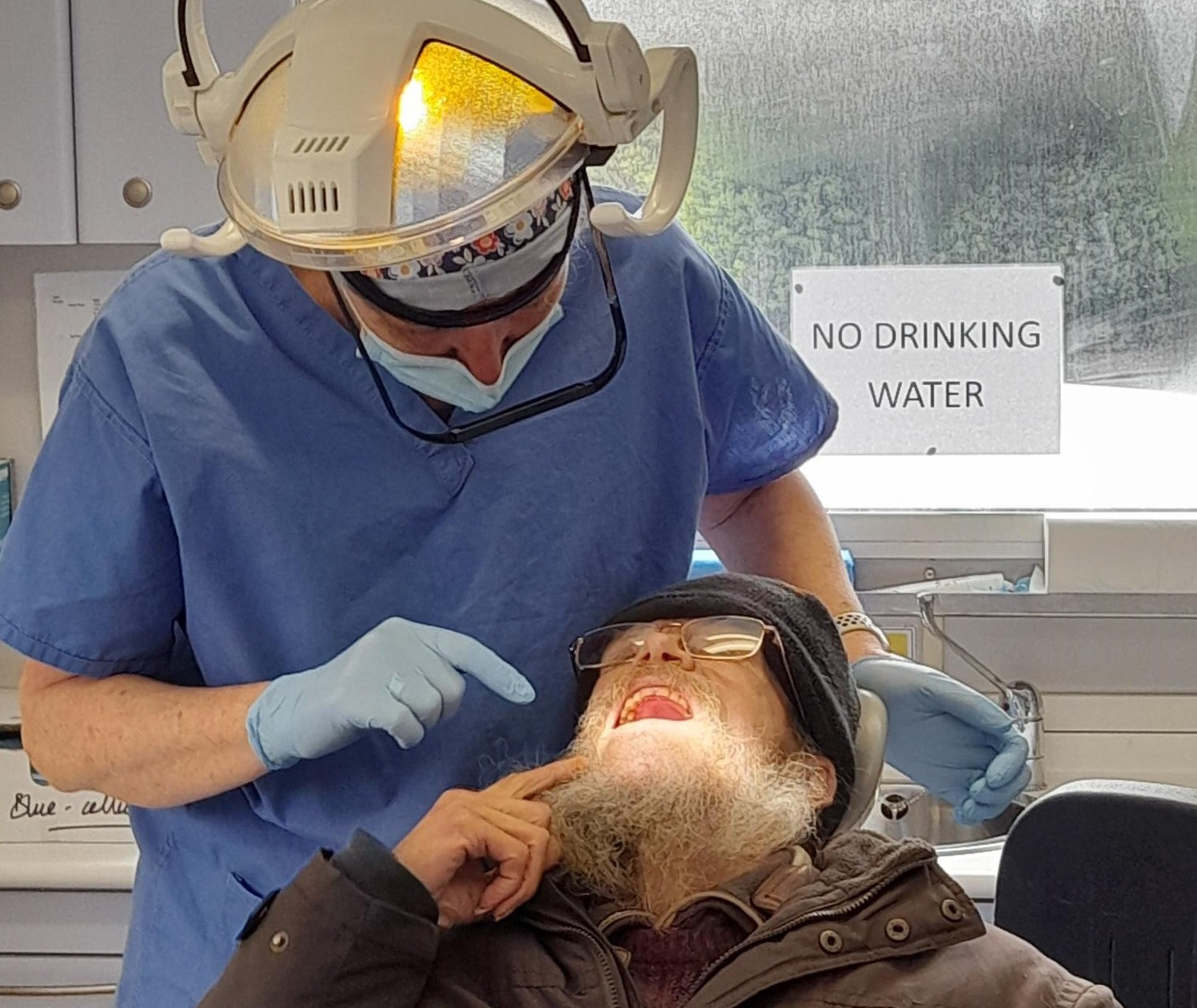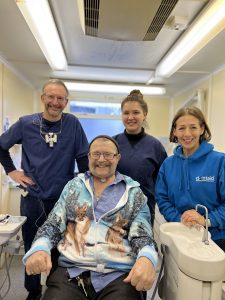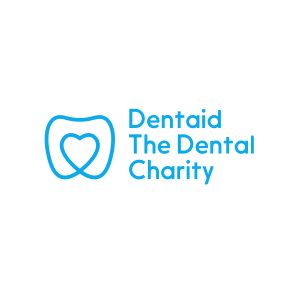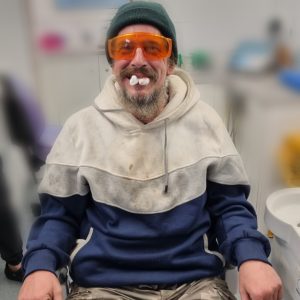‘Action not words’
News Promotional FeaturesPosted by: Dental Design 28th April 2023

Jill Harding talks to Dental Sky about the UK’s oral health crisis
A healthy smile is fast becoming an indicator of our socioeconomic status. With a wealth of studies to evidence the correlation between oral health and income, occupation and social background, the current shortage of NHS appointments has further deepened health inequalities in the UK.
Issues of access are widespread. Amid the crisis, patients who can afford private dental care have migrated away from the long NHS waiting lists, whilst those who cannot are missing out on regular check-ups, risking their health and quality of life.
With NHS dentists beset by what was considered by many an unworkable contract, the pandemic exacerbated the problems of access. Appointment delays created a backlog and the steep rise in living costs are now adding to the problem.
NHS Digital reveals that the number of adults seen by NHS dentists within recommended timeframes decreased by 9.5% in 2021-22 against the previous year. [1]
Two years ago, a report by Public Health England outlined the influences on public dental health, stating that ‘there is clear and consistent evidence for social gradients in the prevalence of dental conditions, the impact of poor oral health and service use’ [2].
It recognised that oral health inequalities ‘remain a significant public health problem’ and that reducing them ‘is a matter of social justice, an ethical imperative and, for public bodies across the health sector, a legal duty’.
This year, National Smile Month (16 May-16 June 2023) is shining a light on the importance of toothbrushing. Every year the campaign champions the benefits of having good oral health and promotes the value of a healthy smile.
The 2023 campaign is ‘Brush for better health’ – clarification of the systemic links between oral health and overall well-being vital to public health messaging. But with the pandemic’s impact still reverberating and the financial crisis forcing people to carefully consider their outgoings, the nation’s oral health is paying a heavy price.
There are health implications for people in vulnerable groups or those with lower socioeconomic status and failure to access dental care is among the challenges. These populations often have considerably poorer oral health across all assessed outcomes. For some, this may even involve limited access to toothbrushes and toothpaste or limited places to clean their teeth.
The Wrigley Oral Healthcare Programme’s Oral Health Index recently revealed that more than half (54%) of its 6,000 respondents believed there is a postcode lottery accessing dental services. With 68% agreeing there is a crisis in the provision of dentistry, three-quarters (77%) felt the government could do more to promote oral health. [3]
With fewer NHS appointments available and many areas with long waiting lists to register, it can impact the quality of life for those people for whom private dental care is unaffordable. Sometimes, they take matters into their own hands with media stories of DIY dentistry highlighting deeper problems.

Dentaid The Dental Charity has been operating mobile dental units across the UK for many years. The charity’s volunteers visit homeless shelters, soup kitchens and community buildings to provide free dental screening, advice and treatment for underserved-communities who are unable to access NHS dental care.
The charity’s efforts to break down barriers and help people who most need dental care access essential dental treatment are a vital lifeline for many. But it has cast its net beyond the people experiencing homelessness and other vulnerable groups of late to include public-access clinics. This focus had to change when the pandemic limited opportunities to help populations overseas. But their work has highlighted needs here in the UK, and demand has skyrocketed in the last 2 years.
Jill Harding is the communications director at Dentaid The Dental Charity.
Back in 2008, Dentaid The Dental Charity was refurbishing and delivering dental equipment to countries in need. It then developed its work to care for those in pain by funding outreach clinics and sending teams of volunteers to support local dental professionals. Now, although its overseas work continues, it is very much focused on helping the UK population.
Jill says: ‘The pandemic was not solely the catalyst for the charity’s work on home soil. It had already started working in the UK when, in 2015, it responded to a cry for help from people in Kirklees in West Yorkshire who were using a soup kitchen but unable to eat the food due to toothache.
‘It was a slow evolution for the first couple of years but, since lockdown, demand skyrocketed partly due to the backlog created by the pandemic. This also led to heightened awareness about the groups of people who have always faced challenges in accessing dentistry.’
Earlier in the year, the charity updated its branding, too, to better reflect its work.
‘The old logo had an image of the globe within it, but times and our charity have moved on’, Jill says.

The new Dentaid logo
So, whilst it was always the charity’s intention to develop its UK work, the growth in demand has been ‘almost exponential,’ Jill says. ‘Dentaid The Dental Charity has always been fleet of foot. When opportunities to help more people present themselves, we make the most of them. There is now a vast geographical spread, and we are looking to work in new areas all the time. The team has expanded rapidly – we now have 28 members of staff and are currently planning to expand our regional hubs, too. We already have one operating near Halifax and are about to open one in Kent and base a mobile dental unit in Northern Ireland. We are mindful of environmental impact, so this helps reduce the need to travel.’
The charity will run at least 500 clinics in the UK this year. After its unveiling at the BDIA a new unit will be based at Maidstone, Kent run by a clinical supervisor and mobile unit officer from a hub that will serve the southeast.
Disengagement with traditional services can include logistical challenges, too. Often, vulnerable groups haven’t the contact details necessary for registration, or they may not have anywhere to store their belongings while they are treated.
‘Our outreach work in mobile dental units takes our services to places where vulnerable groups feel safe and comfortable – hostels, day centres and night shelters. We are breaking down the practical, emotional and mental barriers to them accessing dental care.’
But sustainability is key here. As Jill says: ‘Our work needs to be sustainable, which is why we offer oral health education alongside all of our clinics that return to locations regularly. We must start conversations with patients about their teeth to ensure long-term health. Many of the people we treat haven’t attended for so long that they are disconnected from dentistry, which is why we return regularly. During sessions at our mobile units, volunteer clinicians offer oral health advice and hand out toothbrushes and toothpaste. Volunteers on our BrightBites programme, an oral health education scheme that visits schools, also hand out these resources.’

The government’s failure to address political and public health failures is difficult to ignore. Considering the litany of challenges dentistry faces, it must impact the team hugely. But Jill is keen to stress the importance of action rather than words.
‘As a charity, it isn’t for us to say why these services are not available to everyone or comment on funding in dentistry. What we do focus on, however, is being out there and doing something – running our clinics for the communities that need us most. We now have seven mobile units and one trailer servicing the UK. We have a fundraising events programme and encourage practices to hold events. We are always looking for volunteers and welcome input from across the profession.
She adds: ‘Dentaid The Dental Charity has always stepped in where there is a gap in care. Our services are delivered by much-valued volunteers who have often identified a need within their communities. Quite simply, we are committed to helping those who are the hardest to reach – wherever they might be.’
For more information, visit https://www.dentaid.org/
References
- https://digital.nhs.uk/news/2022/9.5-decrease-in-adults-seen-by-dentists-in-past-two-years
- https://www.gov.uk/government/publications/inequalities-in-oral-health-in-england/inequalities-in-oral-health-in-england-summary
- https://smile-ohm.co.uk/2023/03/14/more-than-a-third-of-11-16-year-olds-would-resort-to-diy-dentistry-measures/








